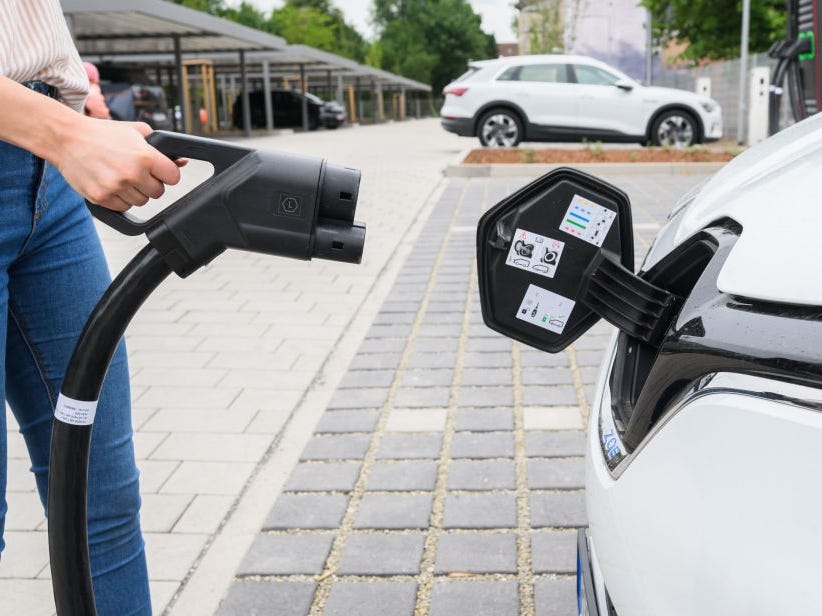- A new survey found that 20% of EV drivers visited a charging station without charging their car, due to issues with charging hardware.
- Range anxiety and the hassle of charging pose major roadblocks to EV adoption.
- The J.D. Power survey also shows electric car owners prefer Tesla charging stations.
Electric cars are getting more popular, but lackluster charging options could turn some drivers away.
A new survey from J. D. Power found that one in five electric car owners that visited a charging station ended up not charging their vehicle. Of the drivers that didn't charge their EVs, 72% said the station was out of service or malfunctioning.
The survey included 11,554 electric and hybrid car owners who responded to the study between January and June of this year. The executive director of global automotive at J.D. Power, Brent Gruber, said that the survey showed that public charging continues to hobble the EV market.
"Not only is the availability of public charging still an obstacle, but EV owners continue to be faced with charging station equipment that is inoperable," Gruber said in the press release.
J. D. Power's study, which was conducted with EV data firm PlugShare, lines up with recent reporting on the EV market. On Tuesday, The New York Times reported that some EV drivers are second-guessing their decision to buy an electric car amid a slew of broken and malfunctioning charging stations. Earlier this year, a reporter from The Wall Street Journal said she took an electric car on a cross-country road trip and often ended up waiting hours on end for the car to charge due to buggy chargers.
Range anxiety has been consistently identified as a key barrier to EV adoption. Last year, Insider's Dominick Reuter reported that one in five electric car owners had switched back to gas-powered cars due to the hassle of charging.
J. D. Power's Gruber says the study shows that public chargers have room for improvement, especially when it comes to competing with the ease of fueling up at a gas station.
"Everyone knows that the landscape of gas stations is focused on convenience — readily available, fast fueling and quick convenience items," Gruber said. "Although fast charging is seemingly getting faster by the day, to expedite the charging process vehicles will need to accommodate the newest ultra-fast chargers. Currently, only a handful of vehicles can take advantage of the fastest charging speeds. And no matter how fast their vehicle charges, EV owners still indicate they need more options for things to do during each charging session to enhance convenience and fill the down time."
The survey found that satisfaction with Level 2 charging stations, which make up the majority of stations in the US, has dropped over the past year. Meanwhile, customer satisfaction levels with faster direct-connect (DC) charging stations like Tesla's Supercharger have remained stagnant.
In fact, the study highlighted a key advantage Tesla has over its competitors. Survey respondents consistently ranked Tesla Level 2 and DC charging station higher than its competitors.
Tesla stations are none to include more amenities — a feature that the company plans to expand. In May, it was revealed that Tesla is planning to build a Supercharger station with a 24-hour diner and drive-in theater. Earlier this month, a Tesla pool opened at one of the company's stations in Germany.
While increasing charging infrastructure is a top priority for the Biden administration, Gruber says the survey shows the US has a long way to go.

